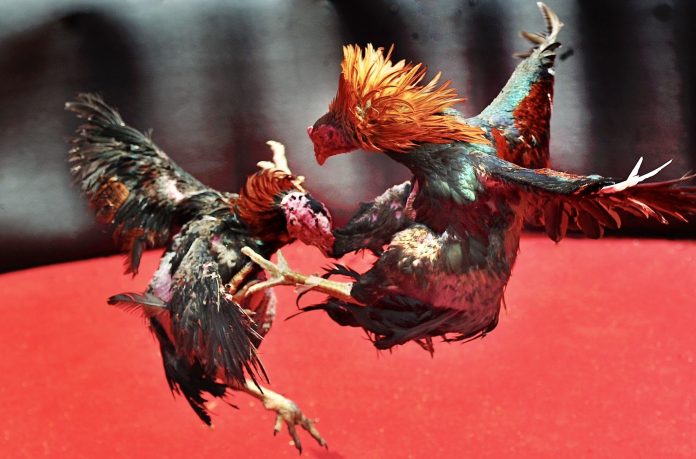
Cockfighting Ban In Costa Rica Upheld After Being Challenged By Cockfighting Breeders Association
You can help all animals and our planet by choosing compassion on your plate and in your glass. #GoVeg
RELATED ARTICLES
Pressure Mounts For Arizona To Ban Dog Pack Hunting Of Mountain Lions, Bears & Other Critical Species
Conservation groups have submitted a petition to the Arizona Game and Fish Commission urging a ban on the use of dog packs for hunting...
Help Save Millions Of Lives This Holiday By Choosing Compassion On Your Plate; Adopt A Turkey Today!
As Thanksgiving approaches, we hope you enjoy a warm and safe holiday. We encourage you to make a compassionate choice by leaving animals off...
Giraffes Are One Step Closer To Receiving Vital Endangered Species Act Protections
In response to a petition and subsequent lawsuit by conservation and animal protection organizations, the U.S. Fish and Wildlife Service (USFWS) has proposed listing...
Popular stories
Breaking News
Peace 4 Animals’ Debuts Gripping Trailer To Their Latest Documentary ‘Protectors of the Wild’
We are excited to unveil the trailer for Peace 4 Animals’ upcoming documentary, Protectors of the Wild. This powerful film aims to raise critical...
International News
Breaking! Animals Asia Rescues A Bear Named Cotton Blossom That Was Held Captive In A Barren Cage For Over 14 Years In Vietnam
Photos by: Animals Asia
For over 14 years, a bear that Animals Asia has named Cotton Blossom was held captive in a barren cage, robbed...
News
Victory For Farm Animals & Free Speech! The U.S. Supreme Court Declines To Review Kansas’ Ag-Gag Law That Would Have Prevented Undercover Filming In...
In a major victory for animals and farm workers in the animal agriculture industry, the U.S. Supreme Court declined to review a decision by...


